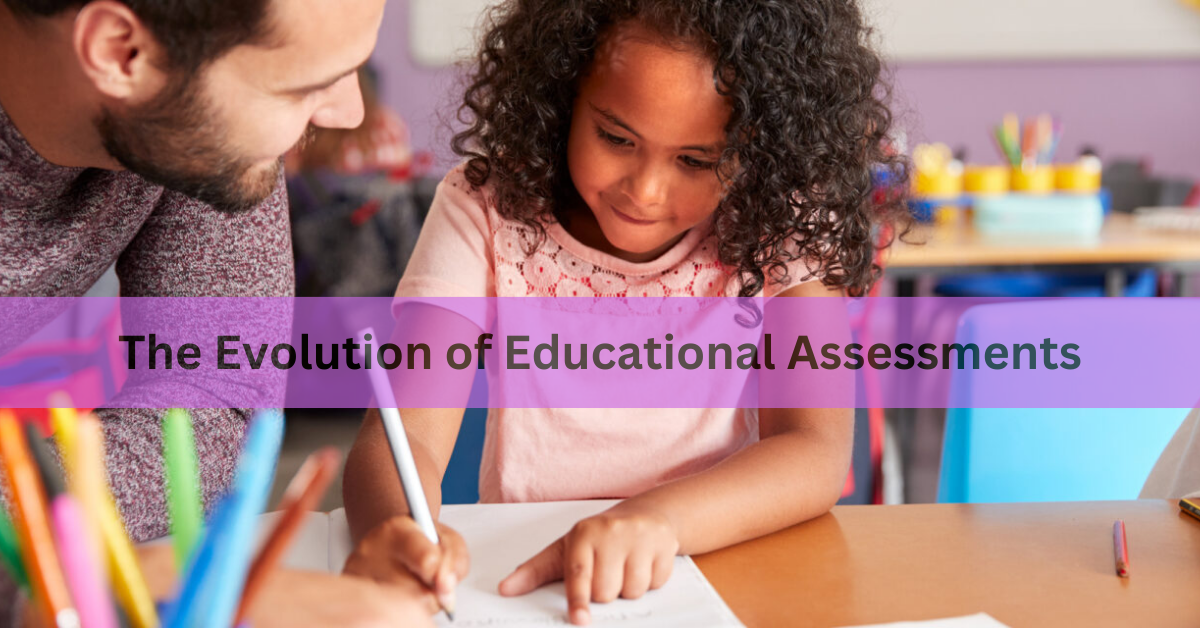The Evolution of Educational Assessments
Educational assessments have undergone significant changes over the years, reflecting advancements in pedagogy, technology, and our understanding of student learning. From traditional standardized tests to innovative formative assessments, the methods and tools used to evaluate student performance have evolved to provide more comprehensive and meaningful insights into student learning. This article explores the history, current trends, and future directions of educational assessments.
The History of Educational Assessments
Educational assessments have their roots in ancient civilizations, where oral examinations and apprenticeships were common. In the 19th century, the industrial revolution and the rise of compulsory education led to the development of standardized testing. The introduction of the IQ test in the early 20th century marked a significant milestone, aiming to measure intellectual ability objectively.
Standardized tests became widely adopted in the mid-20th century, with multiple-choice exams becoming the norm. These tests were designed to assess a broad range of knowledge and skills quickly and efficiently. However, they were often criticized for their limited scope and inability to measure higher-order thinking skills.
The Shift Towards Formative Assessments
In recent decades, there has been a growing recognition of the limitations of standardized testing. This has led to a shift towards formative assessments, which are designed to provide ongoing feedback to students and teachers. Unlike summative assessments, which evaluate student performance at the end of a learning period, formative assessments are integrated into the learning process.
Formative assessments include quizzes, observations, peer reviews, and self-assessments. They help identify learning gaps, inform instructional strategies, and promote a growth mindset among students. By providing timely and actionable feedback, formative assessments support continuous improvement and personalized learning.
The Role of Technology in Educational Assessments
Technology has revolutionized educational assessments, making them more interactive, adaptive, and accessible. Computer-based testing allows for a more engaging and personalized assessment experience. Adaptive assessments, powered by algorithms, adjust the difficulty of questions based on student responses, providing a more accurate measure of student ability.
Digital portfolios and e-assessments enable students to showcase their work and progress over time. These tools support a more holistic evaluation of student learning, incorporating various artifacts such as essays, projects, and multimedia presentations. Additionally, online assessment platforms offer immediate feedback, saving time for both students and teachers.
Performance-Based Assessments
Performance-based assessments require students to demonstrate their knowledge and skills through real-world tasks. These assessments go beyond traditional tests by evaluating critical thinking, problem-solving, creativity, and collaboration. Examples include presentations, experiments, case studies, and project-based learning.
Performance-based assessments provide a more authentic measure of student learning and prepare students for future challenges. They encourage active learning, critical reflection, and the application of knowledge in practical contexts. While they can be time-consuming to design and evaluate, their benefits in fostering deep learning are substantial.
Competency-Based Assessments
Competency-based assessments focus on measuring students’ mastery of specific skills and competencies rather than their performance on standardized tests. This approach aligns with personalized learning and allows students to progress at their own pace. Competency-based assessments are often used in career and technical education, where practical skills are essential.
These assessments emphasize mastery and proficiency, ensuring that students acquire the necessary skills before moving on to more advanced topics. Competency-based education promotes lifelong learning and adaptability, preparing students for an ever-changing job market.
The Importance of Equity in Educational Assessments
Ensuring equity in educational assessments is a critical consideration. Traditional standardized tests have been criticized for their cultural biases and unequal impact on marginalized groups. Efforts to address these issues include developing culturally responsive assessments and providing accommodations for students with disabilities.
Equitable assessments recognize and value diverse student backgrounds, experiences, and learning styles. They aim to provide all students with fair opportunities to demonstrate their abilities and potential. Inclusive assessment practices contribute to a more just and equitable education system.
Future Trends in Educational Assessments
The future of educational assessments is likely to be shaped by ongoing advancements in technology, neuroscience, and data analytics. Emerging trends include:
- Artificial Intelligence (AI) in Assessments: AI can analyze large volumes of data to provide detailed insights into student learning patterns and progress. AI-powered assessments can offer personalized feedback and adaptive learning pathways.
- Gamification: Incorporating game elements into assessments can increase student engagement and motivation. Gamified assessments make learning fun and interactive, encouraging students to take ownership of their learning journey.
- Real-Time Analytics: Real-time data analytics provide immediate feedback on student performance, allowing teachers to adjust their instructional strategies promptly. This enables more responsive and effective teaching.
- Social-Emotional Learning (SEL) Assessments: As the importance of social-emotional skills gains recognition, assessments that measure SEL competencies such as empathy, resilience, and teamwork are becoming more prevalent. These assessments help develop well-rounded individuals.
- Micro-Credentials and Digital Badges: Micro-credentials and digital badges recognize and validate specific skills and achievements. These credentials offer a flexible and modular approach to learning, allowing students to build a portfolio of competencies.
The Role of Educators in Evolving Assessments
Educators play a crucial role in the evolution of educational assessments. Professional development and training are essential to equip teachers with the knowledge and skills to implement innovative assessment practices. Collaboration among educators, policymakers, and researchers is vital to ensure that assessments are aligned with educational goals and best practices.
Teachers can also advocate for assessment literacy, helping students understand the purpose and process of assessments. By involving students in self-assessment and goal-setting, educators can foster a sense of ownership and accountability in the learning process.
Conclusion
The evolution of educational assessments reflects a shift towards more comprehensive, equitable, and student-centered approaches. From formative assessments and performance-based tasks to the integration of technology and AI, the landscape of educational assessments is continually evolving. As we move forward, it is essential to prioritize personalized, inclusive, and meaningful assessments that support all students’ growth and development. By embracing these advancements, educators can create a more dynamic and effective education system that prepares students for future success.




